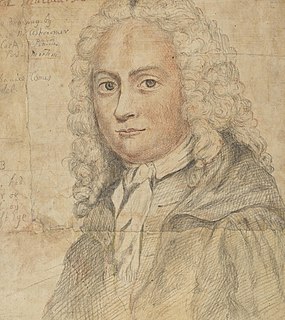A Quote by Joseph Priestley
Could we have entered into the mind of Sir Isaac Newton, and have traced all the steps by which he produced his great works, we might see nothing very extraordinary in the process.
Related Quotes
Long ago, Sir Isaac Newton gave us three laws of motion, which were the work of genius. But Sir Isaac's talents didn't extend to investing: He lost a bundle in the South Sea Bubble, explaining later, 'I can calculate the movement of the stars, but not the madness of men.' If he had not been traumatized by this loss, Sir Isaac might well have gone on to discover the Fourth Law of Motion: For investors as a whole, returns decrease as motion increases.
Nothing is so much coveted by a young man as the reputation of being a genius; and many seem to feel that the want of patience for laborious application and deep research is such a mark of genius as cannot be mistaken: while a real genius, like Sir Isaac Newton, with great modesty says, that the great and only difference between his mind and the minds of others consisted solely in his having more patience.
It is not therefore the business of philosophy, in our present situation in the universe, to attempt to take in at once, in one view, the whole scheme of nature; but to extend, with great care and circumspection, our knowledge, by just steps, from sensible things, as far as our observations or reasonings from them will carry us, in our enquiries concerning either the greater motions and operations of nature, or her more subtile and hidden works. In this way Sir Isaac Newton proceeded in his discoveries.
Isaac Watts, of course, is a hymn writer in the tradition of Congregationalism who lived in the seventeenth and early eighteenth century. He is very interesting and important because he was also a metaphysician. He knew a great deal about what was, for him, contemporary science. He was very much influenced by Isaac Newton, for example. There are planets and meteors and so on showing up in his hymns very often. But, again, the scale of his religious imagination corresponds to a very generously scaled scientific imagination.
As to the Christian religion, besides the strong evidence which we have for it, there is a balance in its favor from the number of great men who have been convinced of its truth after a serious consideration of the question. Grotius was an acute man, a lawyer, a man accustomed to examine evidence, and he was convinced. Grotius was not a recluse, but a man of the world, who certainly had no bias on the side of religion. Sir Isaac Newton set out an infidel, and came to be a very firm believer.
Behind the newspaper Julian was withdrawing into the inner compartment of his mind where he spent most of his time. This was a kind of mental bubble in which he established himself when he could not bear to be a part of what was going on around him. From it he could see out and judge but in it he was safe from any kind of penetration from without. It was the only place where he felt free of the general idiocy of his fellows. His mother had never entered it but from it he could see her with absolute clarity.
Ever since Sir Isaac Newton's times, scientists have worked in the same sort of way: They show a great respect for experiment and observation, They don't cherry pick data, They take a skeptical approach to what they do. And then scientists work together to get a consensus as to what should be believed And that generates very reliable knowledge and that reliable knowledge drives innovation
Mr Hooke sent, in his next letter [to Sir Isaac Newton] the whole of his Hypothesis, scil that the gravitation was reciprocall to the square of the distance: ... This is the greatest Discovery in Nature that ever was since the World's Creation. It was never so much as hinted by any man before. I wish he had writt plainer, and afforded a little more paper.
Quietly Sophronia added, "And the soot on my dress, sir?" "I didn't see anything." Professor Braithwope smiled down at her, showing a small hint of fang. Sophronia grinned back. "I'm glad we understand each other, sir." The vampire looked out into the night. "This is the right finishing school for you, isn't it, whot?" "Yes sir, I think it might very well be." "A piece of advice, Miss Temminnick?" "Sir?" "It is a great skill to have friends in low places. They, too, have things to teach you." "Now, sir, I thought you didn't see any soot.
There is nothing so remote from vanity as true genius. It is almost as natural for those who are endowed with the highest powers of the human mind to produce the miracles of art, as for other men to breathe or move. Correggio, who is said to have produced some of his divinest works almost without having seen a picture, probably did not know that he had done anything extraordinary.





































